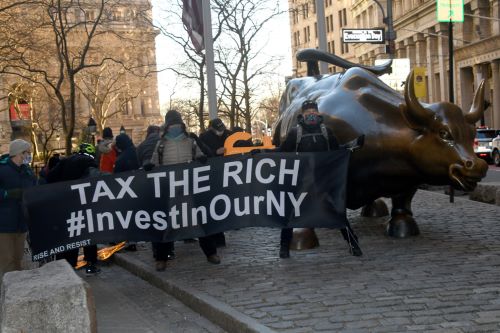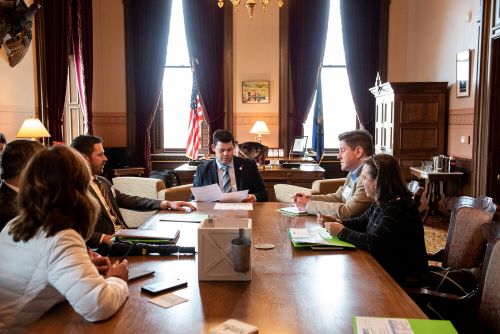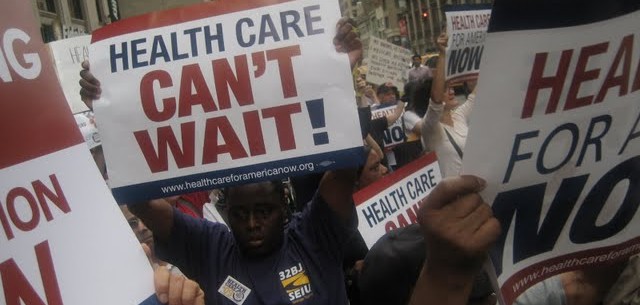Part and parcel of our budget advocacy on public health and health care is the simultaneous imperative to push for what will make our priorities a reality: actual dollar allocations. Doing so will require the State Legislature to turn away from Gov. Cuomo’s long-held insistence on cut-and-starve austerity politics. Now is their chance (and time!) to challenge him, and to lead our state in a new and different direction so that we can turn the corner on the pandemic and economic recession.

Unleashing Medicaid
Medicaid is currently the bedrock of our state’s health systems. It is simultaneously an insurance coverage program for over a third of our state’s residents, the financial foundation of our hospitals and health care safety net, and a vital public health program that helps to protect all of us. Unfortunately, for the past decade our state leaders have imposed an arbitrary global growth cap on Medicaid, regardless of any change in circumstances, enrollment growth, and demand for services. In effect, this policy has turned our Medicaid program into a de-facto block grant, something our state’s leaders have always vehemently (and correctly!) opposed when proposed at the federal level.
Over the past year, because of the pandemic and recession our Medicaid program has grown substantially and is now bursting at the seams. It’s trying to do what it’s supposed to do yet is severely hampered by the global cap mechanism. It’s time to turn away from austerity measures and scrap the cap. We must let Medicaid be Medicaid, and that will require substantial additional financial resources.

Raising the Money
The new “Invest in Our New York” campaign, of which we are a member, is promoting a package of six bills to make sure that there’s adequate state funding available to respond to a host of urgent needs that everyday New Yorkers have because of the ongoing COVID-19 pandemic and economic recession. Chief among these needs is a) restoration of a robust public health system that has been severely diminished over the past two decades, and b) strengthening and expanding of our health care safety net and public insurance programs. Both of these urgent priorities will require significant new funding from state coffers, regardless of what may come down from the federal government in the next pandemic relief bill now moving through Congress.
The Invest in Our New York Act is a package of six bills that will raise substantial new revenue by rolling back various special state tax breaks that have been given to large corporations and the ultra-wealthy over recent decades, so that they pay their fair share along with the rest of us. These new funds will be used to a) help out everyday people in this moment of crisis, and b) restore funding to state agencies and programs that have been starved for resources over the past decade. (Click here to learn more about the six bills, and then scroll down.)
The Invest in Our New York Act will restore progressivity to our state’s tax system by a) slightly raising what very rich people pay in wage and investment income taxes, and what large corporations pay on their profits, b) slightly raising taxes on large inheritances, c) slightly taxing overall personal wealth growth, and d) restoring a tiny sales tax on stock trades and other financial transactions that the state used to collect. Taken all together, estimates are that these bills could raise as much as $50 billion. Just imagine what we could do for public health and health care with just a portion of that!
Click here to get more involved in the Invest in Our New York campaign in various ways.

What YOU can do:
As you undertake your advocacy on health care issues, we urge you to also call for our state leaders to raise new revenues by ending special tax breaks given to those who already have the most income and wealth, so as to a) help the millions of everyday New Yorkers who desperately need help right now, and b) reverse a decade or more of austerity politics and foster broad prosperity instead. The Invest in Our New York Act offers a template, and there are also other legislative proposals from other quarters that put forth ideas in a similar vein. We need our state leaders to not just talk the talk (which many do robustly) but to also walk the walk, and get it done.
